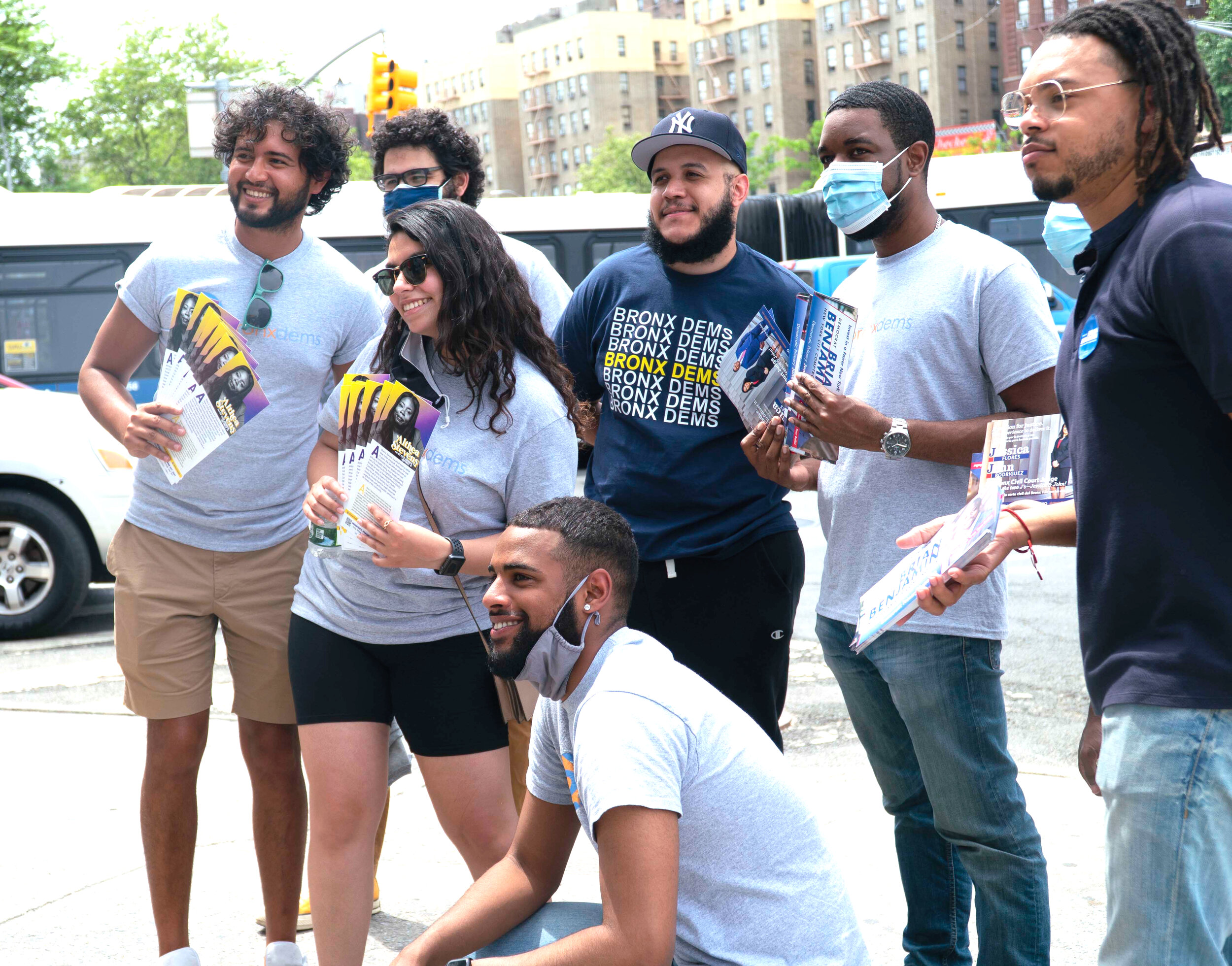For years, voter turnout in the South Bronx has been among the lowest in New York City — but some youth and civic engagement groups are trying to change that as the city prepares for the end of a major local election.
Ashley Meza, president of the Bronx Young Democrats, the youth arm of the Bronx Democratic Party, says their organization has been trying to get more young people engaged in local politics. The Bronx Young Democrats has reached out to different schools to do voter registration drives. Meza also wants schools to offer more seminars to teach students about the importance of voting.
“I feel like there’s still a stigma that exists, where people feel that the government isn’t doing something,” Meza said. “I think that the best way to change that mentality is to get people involved, and it starts in the schools.”
Tuesday’s election is a big one: Voters will be deciding on the next mayor of New York City, among other major city leaders. But voting advocates in the South Bronx have their work cut out for them. In 2018, the area ranked the lowest in voter participation among city neighborhoods, according to NYC Votes, an initiative of the city Campaign Finance Board.
NYC Votes came to that result by assigning every active voter in the city a “voter participation score” — dividing the number of elections the person voted in by the number of elections the person was eligible to vote in. They found that Community Districts 1 and 2 in the South Bronx had an average score of 19.3, compared with the citywide average score of 28.4.
And although 58% of young voters from 18 to 29 were registered to vote in 2018, only about a quarter of them actually voted in the general election that year, the data from NYC Votes shows.
Monica McDermott, a political science professor at Fordham University, says voter turnout in local elections among the youth and people of color has historically been lower compared with other groups.
According to the 2018 data from NYC Votes, 68% of people in the South Bronx identify as Latino or Hispanic, and 33% identify as Black. Fifty-one percent identify as “Other Race.”
McDermott believes that young people don’t participate in large numbers in part because they don’t feel that politicians represent their interests.
“Everyone deserves representation in our country, and if we can help better educate people about why their interests matter, how to make people listen to them, and that their voices can count, then I think that that’s something that needs to be done,” McDermott said.
Michelle Del Villar, who is from the Bronx and studies at Macaulay Honors College, is doing just that as part of an organization called YVote, which bills itself as “a cross-partisan youth voting movement,” according to its website.
Born in Spain to Dominican parents, Del Villar couldn’t vote once she turned 18 because she wasn’t a U.S. citizen. But she became interested in politics in high school when she noticed that many of her classmates were not registering to vote.
“I think that it’s my responsibility to encourage others to vote because that young person might think that their vote doesn’t matter, but their vote counts for millions and millions of people who would have loved to vote if they had the chance to,” said Del Villar, who is studying biology and political science at Macaulay.
Mia Payne, also from the Bronx, is another member of YVote. She believes her high school peers don’t see voting as high on their list of priorities, but she’s eager to head to the polls as soon as she’s old enough.
“I want to go out and vote now as soon as I can, so that I can make sure that these politicians are benefiting me in my transition into adulthood,” Payne, who goes to high school in Manhattan, said. “They’re benefiting my economy. If anything, they’re funding my community.”
Watching the Netflix documentary “13th” helped fuel her passion for criminal justice reform and climate change. Payne wants to see more comprehensive civic education that teaches young people how voting works and how policies are created.
“I think especially just as a Black youth, I just saw myself reflected in those documentaries,” Payne said. “It’s just like, ‘Wow, that’s really my community. That can be someone I know.’”
The Mott Haven Herald/Hunts Point Express reached out to the city Department of Education but has not yet received a response.
Dominicanos USA, another civic engagement group that aims to increase voter participation and assist permanent residents in becoming U.S. citizens, has been ramping up efforts in recent weeks to get people to the polls. The organization partnered with several high schools in the South Bronx for Student Voter Registration Day.
“We have been phone banking for the past two weeks for our Get Out The Vote campaign for New York general elections,” said Havolin Tejada, the civic engagement coordinator at Dominicanos USA. “Based on our phone banking, New Yorkers are willing to show up on Election Day. There is also an increased interest in early voting.”
According to the Board of Elections, nearly 88,000 people in the Bronx have participated in early voting since the polls opened on Oct. 23. In-person voting closes at 9 p.m. on Election Day.

